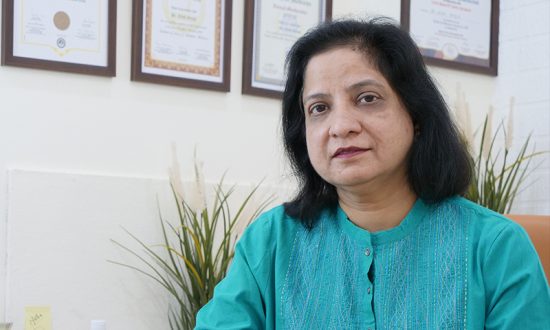Dr Nishi Singh, an MBBS, DGO, MS(Obstetrics and gynaecology), is a Retd. Major from the Indian Army, the prestigious Presidential Award Recipient and an acclaimed infertility specialist, has over 15 years of experience working in leading fertility centres in Delhi and Punjab. She has an incredible record of 5000 Successful IVF credited to her name. Dr Singh has practised sturdy medical ethics and always felt great joy in helping childless couples to conceive. Her compassionate approach, detailed assessment and comprehensive treatment have culminated in very high success rates. Dr Nishi upholds an outstanding ability to provide her patients with a holistic approach, treating her patients with an admirable ability to achieve excellent results. Her expertise and total dedication towards patient care have made her a doctor of choice. She has an accomplished track record where she is highly specialized in dealing with Refractory Infertility Cases, Repeated IVF Failures, Recurrent Abortions and Donor egg and Fertility programmes.
Mental health has become a focus for many in the past year, but stigma and silence remain, especially on the parenting path. Infertility is more stressful than unemployment and divorce, according to 55% of people.
When we can’t forecast or control our future, our stress levels rise. We must check in with ourselves more than ever to ensure our well-being. Those with fertility issues must deal with the monetary aspect as well as the uncertainty that fertility therapy brings with it.
Infertility and Mental Health Research shows infertile women have similar levels of despair and anxiety as those with cancer, AIDS/HIV, and heart disease. Infertility has grown to be lesser of a taboo over recent years, but there’s still work to do.
A recent study examined infertile patients’ reactions to postponed COVID-19 therapies; 66% said infertility remained their worst stressor, causing them more distress than the global pandemic. Therapy calls naturally tripled.
Patients diagnosed with infertility often feel humiliated, ashamed, and alone. It’s important to monitor your mental health. Infertility can be one of the hardest things a person or couple confronts. You want to remain supportive of yourself, even though it can feel like everything is your fault (it’s not!).
Infertility can strain relationships. Waiting for results, affording therapy, balancing work and medical appointments, and medication side effects are all stress relationships. Family and friends don’t always know what to do. The individual undergoing treatment doesn’t want counsel or to hear others’ stories, so they go it alone.
Going through it all alone causes stress and often results in defeat. Utilize your support system as much as possible. If you tell them what you need, they may be able to help. Also, set appropriate boundaries. A baby shower for a friend during a cycle may be a mental health trigger. Instead of volunteering first, create safe boundaries and inform people about your boundaries.
Finding the appropriate words to convey your inner state might be difficult. Infertility is often the first obstacle that involves self-care and boundaries. Having so many emotions at once makes it hard to express them all. Both these obstacles can be improved with therapy. Therapy is often the best option, but sometimes the budget doesn’t allow it. Happify or Mind Body Group therapy can promote self-awareness and relaxation to reduce anxiety. These are beneficial while waiting for test results, appointments, or testing. Cry, journal, or pray for self-care.
When you talk about infertility, you may feel lighter. Validating and accepting your experience helps reduce stress. Having a professional guide you through your emotions helps relieve the pressure you may feel to “have it all figured out.”
Infertility is a condition, not a choice. It’s easy to feel embarrassed, humiliated, or guilty. Don’t! Cancer sufferers don’t feel shame or guilt, so you shouldn’t either. Learning how to best support yourself and honor your feelings during your infertility journey is a critical part of the journey itself.






